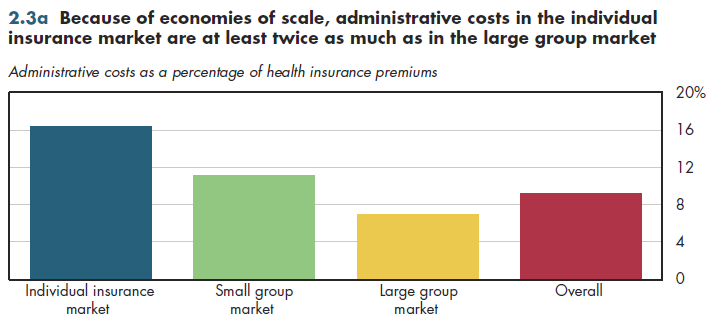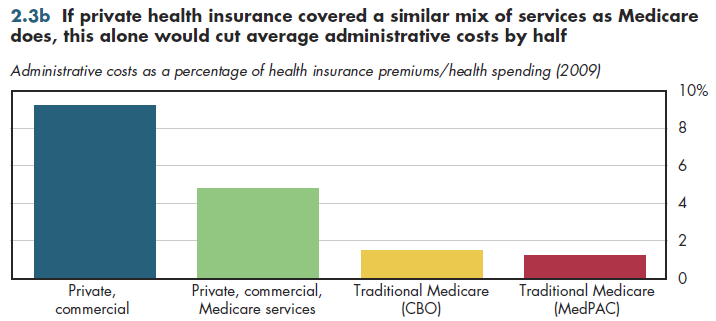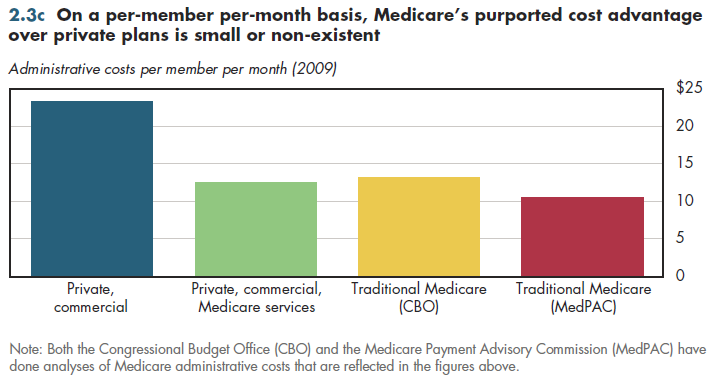Many misconceptions about insurer administrative expenses are grounded in some kernels of truth. For example, there certainly are economies of scale in the administration of health benefits, although their extent is often exaggerated. Although the unit costs of administering claims varies little across different size groups, the administrative loading factor is much higher for individual (non-group) policies compared with large group policies. For example, an insurance agent might have to spend somewhat more time to market a plan to a large group compared with marketing to an individual. But because this cost can be spread over so many lives, the unit costs of marketing are much lower for the group policy.
The administrative costs for small groups (2-50 employees in figure 2.3a) therefore fall in between those for individuals and large groups. The weighted average— accounting for the far larger number of individuals covered by large groups relative to small groups or non-group policies—is slightly more than nine cents of every premium dollar.

This amount is much higher than the administrative share of costs ascribed to traditional Medicare (where services are paid on a fee-for-service basis). However, that is an apples-to-oranges comparison for two reasons. First, administrators of Medicare's private health plans do not have to perform as many functions as do their private counterparts (for example, marketing and provider rate negotiations). When only Medicare administrative services are taken into account, the administrative costs for private plans are cut approximately in half (figure 2.3b). The second reason is that the average dollar amount per Medicare claim is much higher than for private insurance because the elderly and disabled use hospital and nursing home services far more than do children or non-elderly adults.

Thus, an alternative way of assessing administrative costs compares administrative costs per member per month. On average, private commercial health plans spend a little less than $25 monthly — approximately twice the amount for traditional Medicare (figure 2.3c). However, when only Medicare-comparable administrative costs are taken into account, the private plans have administrative costs per member per month almost indistinguishable from those experienced by Medicare carriers.

Download Sherlock (2009) used to create Figures 2.3a, 2.3b, and 2.3c:
- Figure 2.3a: Figure 5
- Figure 2.3b: Figure 8
- Figure 2.3c: Figure 7
Download PowerPoint versions of all figures.
- Sherlock DB. Administrative Expenses of Health Plans. Prepared for the Blue Cross Blue Shield Association. http://www.bcbs.com/issues/uninsured/Sherlock-Report-FINAL.pdf (accessed February 2010).












